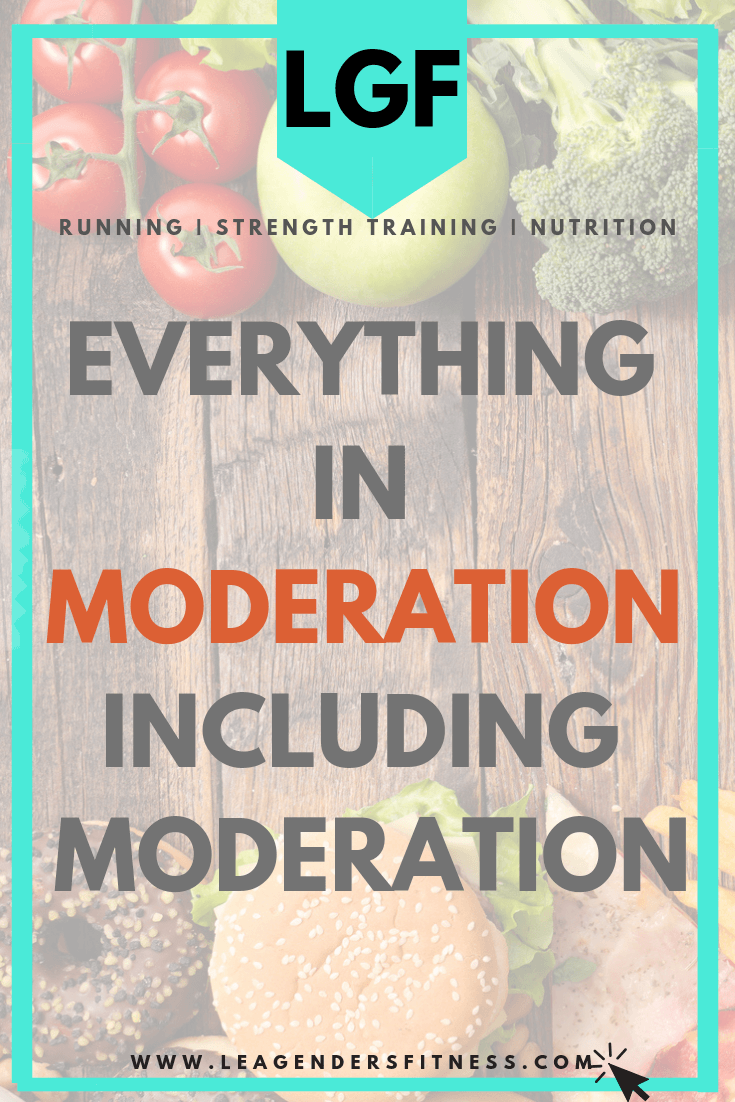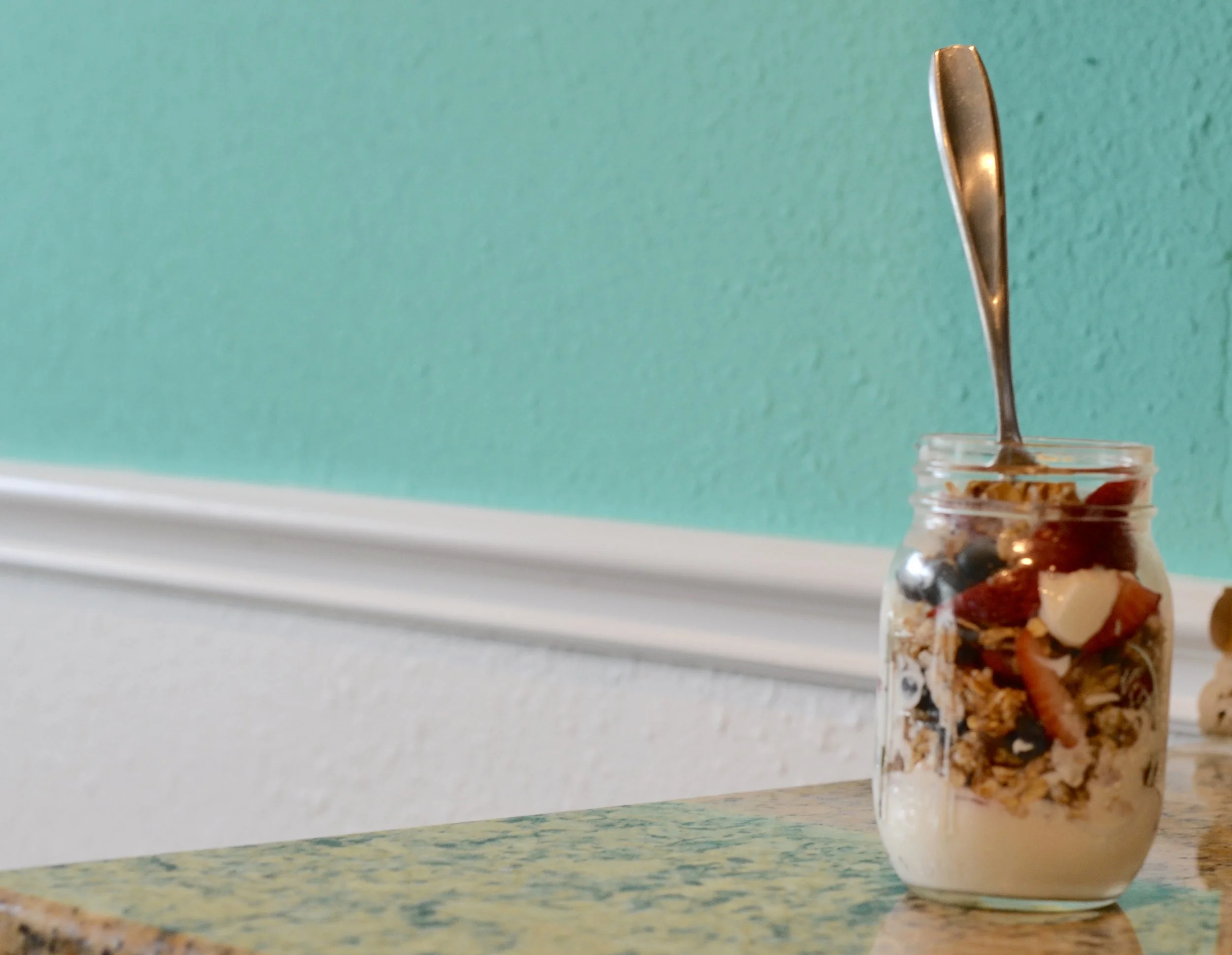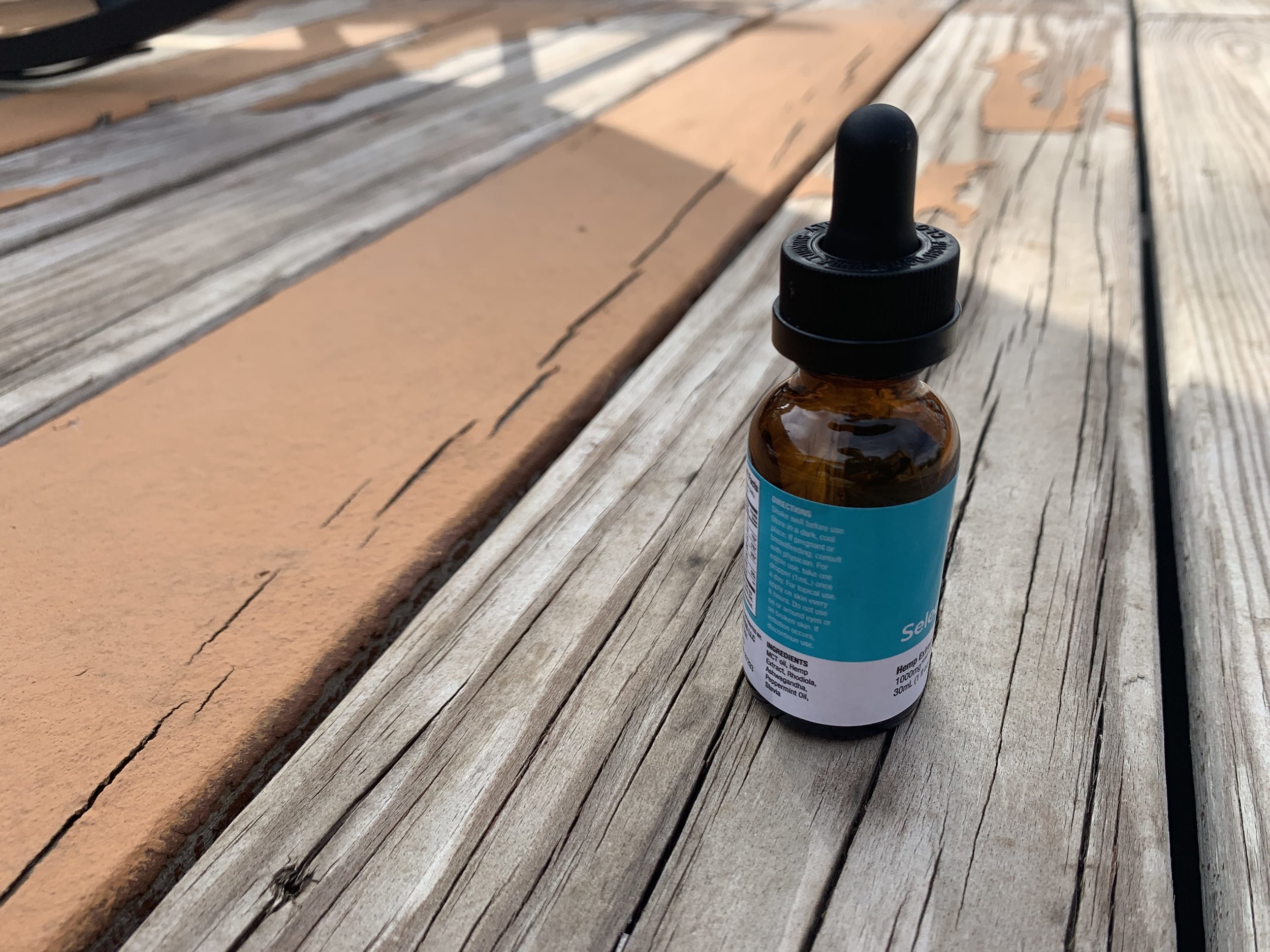If you’ve been following my blog, you know I am an advocate of moderation in nutrition and fitness. The reason I feel so strongly about a balanced approach to healthy living is that I tried all those other ways: I suffered through the diets, the extreme calorie restriction, eliminating major macronutrients, and the crazy workouts; all of them.
I never had any long term success (meaning: I had a ton of short-term results that didn't last). Everything changed for me when I cut the heavy restrictions and just lived my life the best I could, striving to make good-enough choices most of the time, even if they weren’t the perfect ones. It was my secret to success: Boring old moderation. It doesn’t go viral on social media. It doesn’t sell books. It’s not making the local news, but it worked for me for long term success.
I threw away cheat days and allowed myself to indulge when the mood struck. So instead of saving all my ‘bad” choices for one calorie bomb of a day, I allow myself a couple of indulgences throughout the week. I eat well most of the time which allows plenty of room in my diet to occasionally have some fun with food. It is what works for me. Why I don’t eat clean.
Do you have to make such a black and white choice to be healthy?
THE PROBLEM WITH MODERATION
Even with my success with the moderation approach, I accept that moderation does not work for everyone all the time. As a trainer and a coach it’s important for me to understand that everyone is not exactly like me. What works for me may not work for all my clients or readers.
It’s only fair to note that some personality types have better results when abstaining from unhealthy choices altogether, rather than moderating because they have found through trial and error that moderation always leads to overindulgence.
They tell themselves they’ll have two cookies, but end up eating the whole box. They allow for a cheat meal, but it always turns into a cheat weekend. They plan to drink one glass of wine with dinner, but end up polishing off the whole bottle, every single time. When moderation doesn’t work, then try to figure out what will work.
If moderation always leads to overindulgence then maybe abstaining is a better choice for your personality type. But if abstaining makes you feel deprived, then moderation can be your friend. There is not a right or wrong way that applies to everyone. As individuals, we respond to temptations differently.
The most important paragraph in this blog post—-> If food makes you feel anxious or out of control it can be helpful to talk to a licensed nutrition professional like a Registered Dietitian who can help you resolve those issues. A lot of people struggle with food and these professionals are trained to help you feel better!
I don’t buy any foods that I know I can’t control myself around. I never opened a bag of vinegar and oil potato chips without polishing off the whole bag. I follow the “don’t buy it diet.” If it is not in my house, I won’t overindulge. With potato chips, moderation doesn’t work for me, so I abstain or only buy single serving bags.
The other issue that is that over long periods, what is normal can start to shift, and we can get too loose with our choices and keep calling it moderation. One indulgent meal turns into one day, into one weekend, which eventually starts seeping into Monday. When something that we used to do occasionally turns into a habit, it’s not moderation anymore.
We started out going out for a restaurant meal once a week, then it turned into two times over the weekend, then maybe Tuesday night if we were both exhausted. Then this new dessert shop opened that sells fancy cinnamon buns, and we tried that too. Everything in moderation, right? But are we eating out in moderation if we do it four days out of seven in the week? No.
Everything in moderation, including moderation.
EVERYTHING IN MODERATION, INCLUDING MODERATION
Moderation works well, except when it doesn’t, and then changes need to be made. Everything in moderation, including moderation. Keep an open mind, be honest about how your choices are affecting your outcome, and make the necessary changes as needed.
TEMPORARY RESTRICTIONS
There’s a time and place for temporary periods of restrictions to reset to normal.
We decided for March we are not going to eat out at restaurants. Of course, it’s possible to make a healthier decision while dining out or eat out less often, but I find it is much easier to control calories when we prepare food at home. Home cooked food is almost always healthier and lower calorie (not to mention cheaper). If we started to go overboard with restaurant meals, the easiest way for me to reset is to restrict them all together for a short while.
There’s nothing inherently wrong with occasional restaurant meals; they only become an issue when it’s habitual, and you do not see the results you desire. (If it’s working for you, keep doing what you’re doing.)
If sugar is a problem, try to limit all added sugars for 30 days. After two weeks your sugar cravings will likely have subsided quite a bit, and you can return to occasionally enjoying a treat when the mood strikes if you want.
CALORIE COUNTING/TRACKING
If calories have gotten out of hand (or results have stalled), try tracking your food intake in an app for a couple of weeks. A period of strict adherence to calorie counts can help you get back on track when paired with a strategy to return to maintenance.
Counting every morsel that goes into your mouth for the rest of your life probably isn’t sustainable for most people, but tracking for a couple of weeks to establish a baseline can be helpful for a variety of reasons:
Tracking gives you a better idea if you are eating enough or too many calories for your goals. If you’re trying to lose weight, it can be easy to forget that the calories in your fancy coffee or finishing the mac and cheese from your kid’s plate add up.
Tracking can help you make better choices because it raises awareness of what you’re eating. Are you going to enter that entire box of Girl Scout cookies into your tracker? How many calories are in your coffee creamer? How many fun-size Snickers bars did you take from candy bowl?
After a couple of weeks of tracking and stricter adherence to healthier habits reestablished, you can start moving back into the long term strategy of moderation.
5 STRATEGIES TO KICK-START FAT LOSS IN 30 DAYS
Understanding that moderation doesn’t work for everyone all the time and temporary periods of restriction can kick-start fat loss, I’ve compiled five strategies that you can implement today to kick start fat loss in the next 30 days. These are healthy habits that I’d encourage you to work towards full time.
If you can commit to a temporary period of restriction, it can help break the habit cycle and then you can reintroduce (if you want) slowly and occasionally to return to more moderate long term strategy.
I’m not telling you never to eat a slice a bread, have a glass of wine or dessert ever again (I wouldn’t do that to you, I like you!) try it for the next 30 days and see how it makes you feel. Then when you want to have a treat occasionally, it’s no problem!
ELIMINATE OR REDUCE PROCESSED FOODS
Aim to eat mostly whole foods from nature: meat, vegetables, fruit, nuts, and seeds. Most packaged foods don’t qualify, but if you can recognize the ingredients listed on the back of the package, it’s probably ok (i.e., frozen vegetables, eggs, dairy products, quinoa, brown rice, etc.).
ELIMINATE OR REDUCE DRINKS WITH CALORIES (THIS INCLUDES WINE, SORRY FRIENDS)
Empty calories kill results. Try not to drink anything with calories, including soda, fruit juices, coffee drinks (other than black coffee), and other sports or sugary drinks. Eliminating alcohol can quickly boost results if you’re a regular weekend drinker.
Protein shakes without added sugar are an exception to the rule as long as the calories are accounted for in your day.
KEEP ADDED SUGARS TO UNDER 25 GRAMS PER DAY
Pay attention to the sugar content on the nutrition labels. Aim to keep added sugar under 25 grams per day. It's easy to do if you follow rule number one. There is no reason to be overly concerned about natural sugars found in unflavored dairy, fruit, and vegetables since they also have healthy nutrients.
ELIMINATE OR REDUCE RESTAURANT MEALS
Meals prepared at home are almost always healthier, have fewer calories, and less expensive than restaurant meals. If eating out is a regular habit, you can likely improve your diet by just eating at home most of the time.
Restaurants meals aren’t always negative, you can certainly make healthy choices and control portions to still enjoy restaurant meals while losing fat. However, fat loss is largely about being in a calorie deficit (consuming fewer calories than you burn) and reducing restaurant meals can be a strategy to easily cut calories.
MOVE FOR 30 MINUTES A DAY, FIVE DAYS A WEEK
Take a walk, try to jog for 15 seconds, walk for 45 seconds for 30 minutes. Run, lift weights, do bodyweight exercises, ride your bike, practice Yoga, jump on a trampoline, or go roller skating. Find a way to move your body for 30 minutes a day, most days of the week. It doesn’t have to be intense; you only need to move. Consistency is more important than intensity, especially at first. Too busy for 30 minutes? Try breaking it up to 15 minutes in the morning and 15 minutes in the evening.
If it seems like too much, just choose one of these strategies and work on it for a couple weeks before layering on the next one. What do you think? Ready to give it a shot? Let me know how it goes in the comments or on Twitter.
Did you like this post? Do you know someone who might benefit? It helps me when you share with your friends and followers on Facebook, Twitter and Pinterest.









If you have questions about running and weight loss, I’ve rounded up the blog posts to help you with answers. Why do I gain weight during marathon training? What to do when your weight loss plateaus from running. Are you running for performance, or running for weight loss? And why it matters that you choose one. I finish my personal story of how I used running as part of my strategy for permanent fat loss.